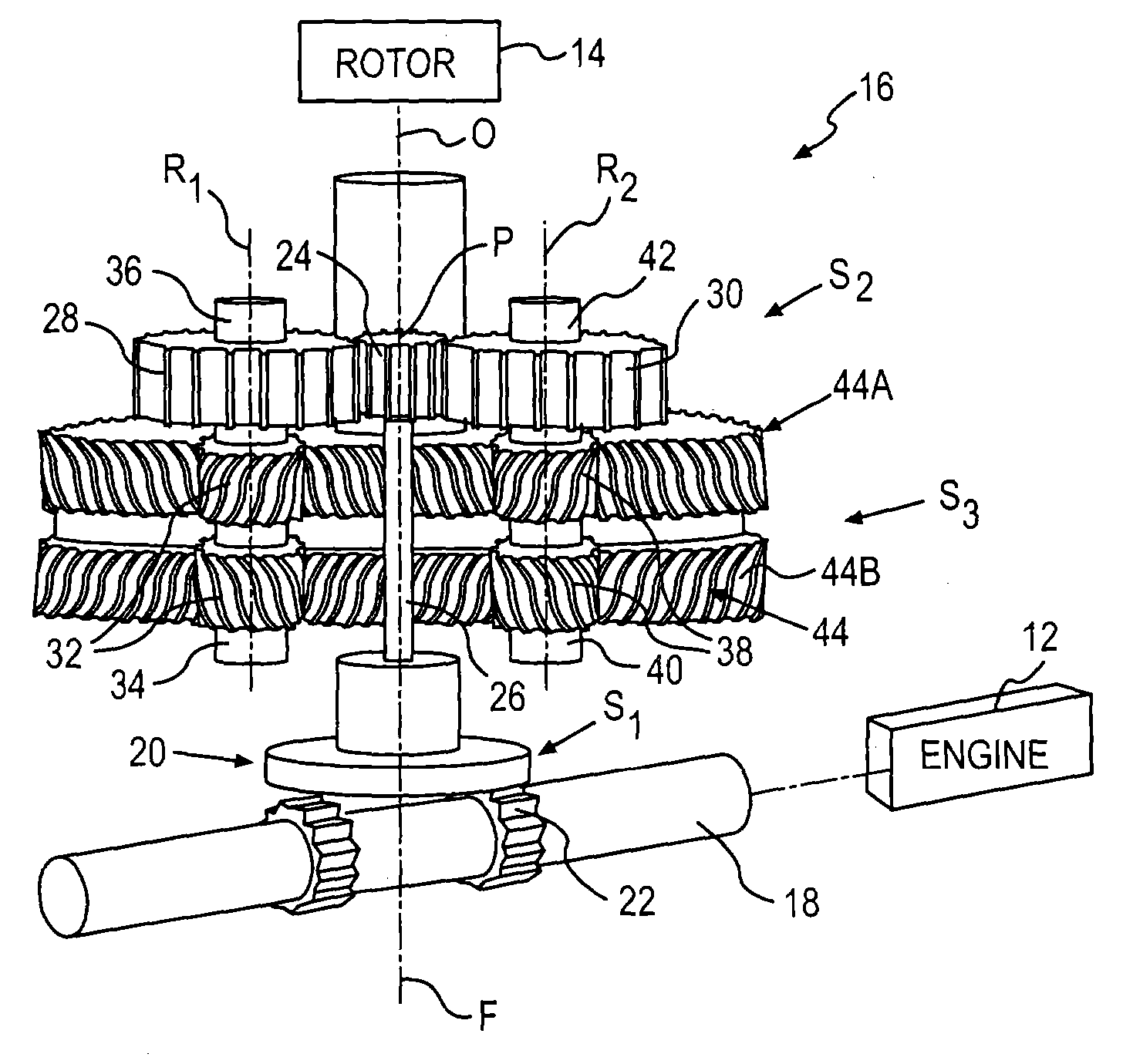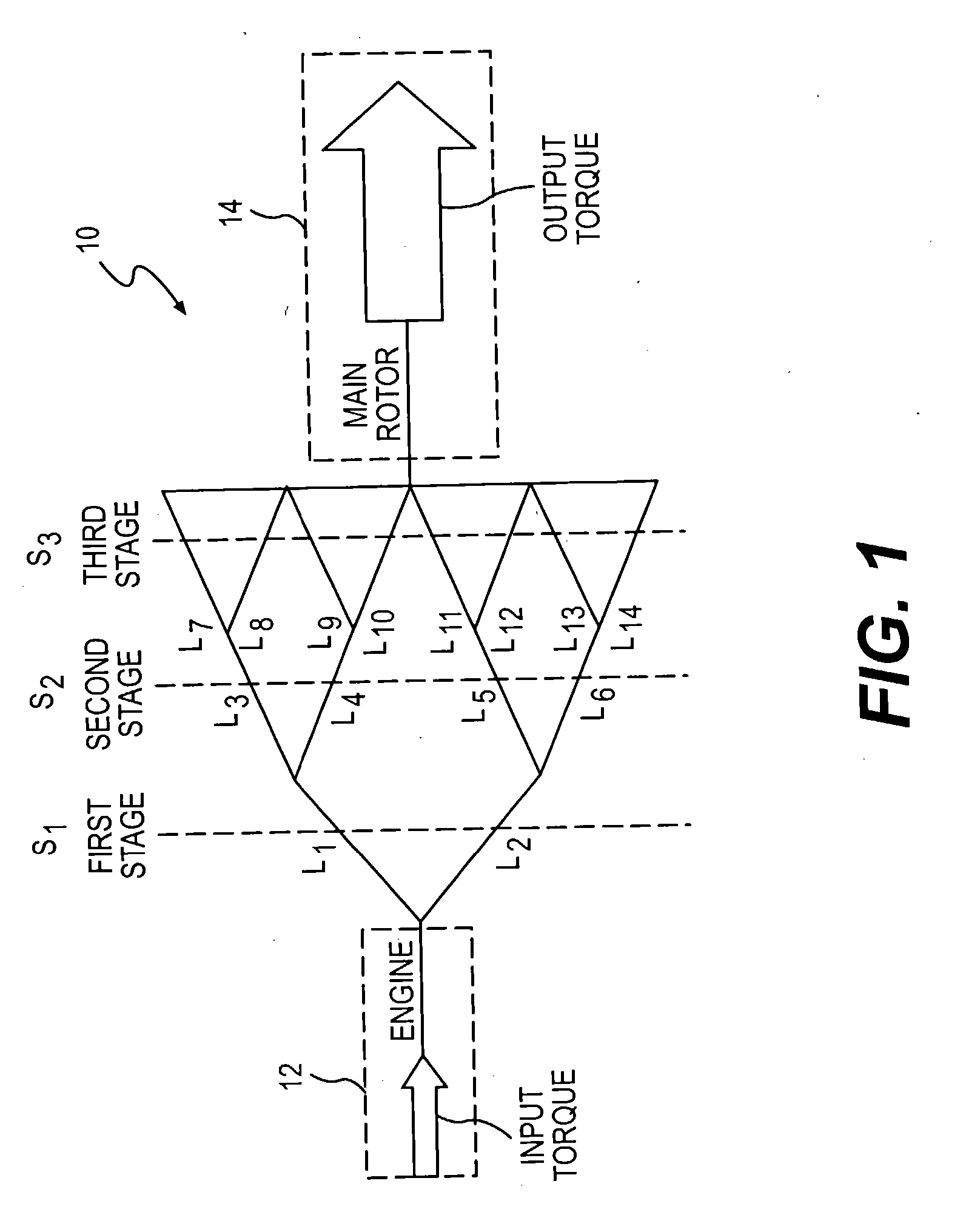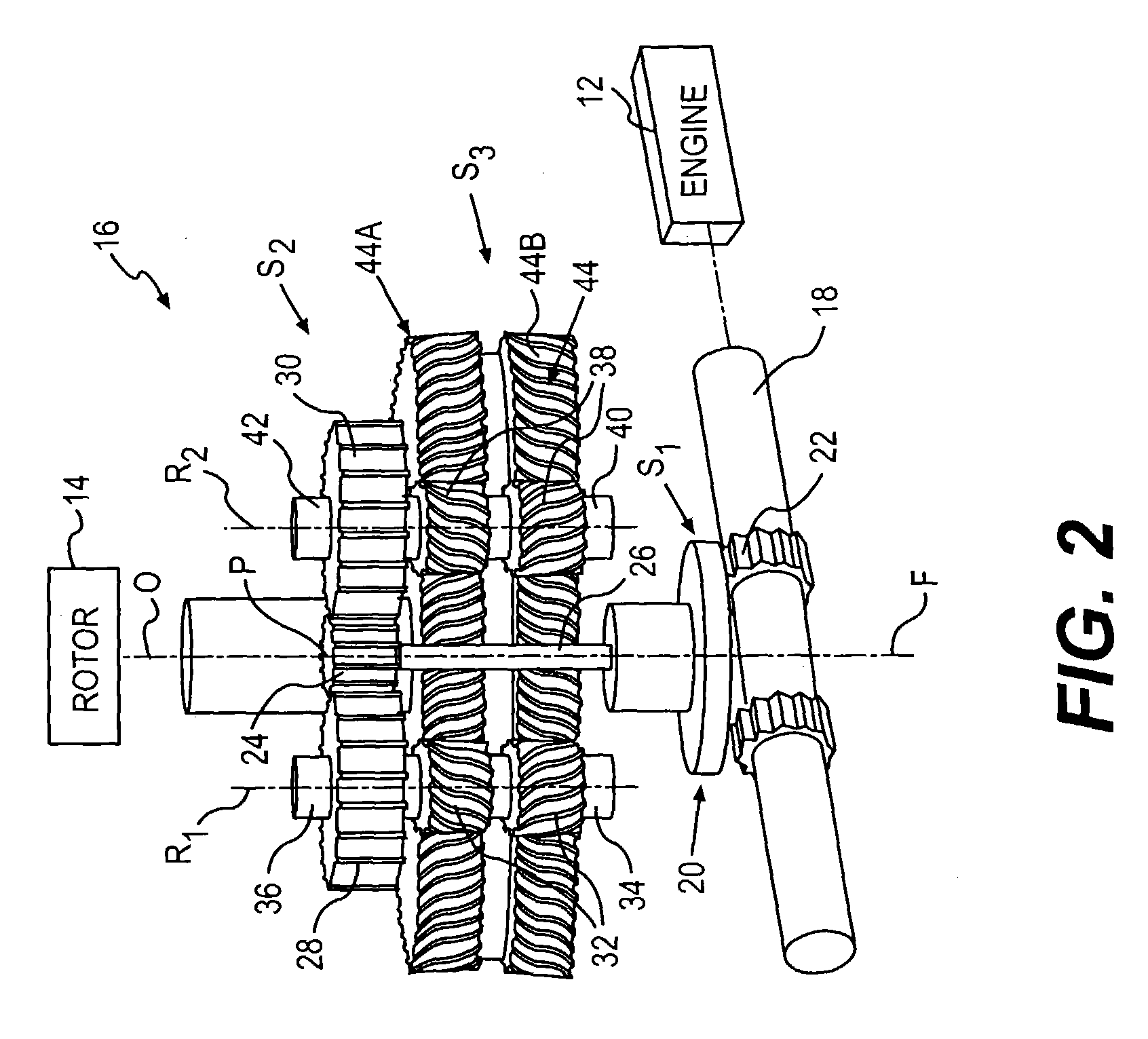Split-torque gear box
a gearbox and torque technology, applied in gearing, transportation and packaging, hoisting equipment, etc., can solve the problems of increasing the cost of production, so as to reduce the weight and simplify the manufacturing process. , the effect of reducing the weigh
- Summary
- Abstract
- Description
- Claims
- Application Information
AI Technical Summary
Benefits of technology
Problems solved by technology
Method used
Image
Examples
Embodiment Construction
[0022]FIG. 1 illustrates a general schematic view of a split torque gearbox system 10. In the case of a rotary wing aircraft transmission, the system 10 is interposed between one or more gas turbine engines (illustrated schematically at 12) and a rotor assembly (illustrated schematically at 14).
[0023] The split torque gearbox system 10 generally includes three stages S1, S2 and S3. Each stage includes a plurality of links L1-Ln. Each link represents gears which splits the torque from the engine 12. Each link is preferably structurally designed based on the transmitted portion of the total load for that link. That is, because of the equality of the load split, each link need not be over designed for a greater capacity as was heretofore required to assure transmission of an unequally split load.
[0024] Referring to FIG. 2, a split torque module 16 of the gearbox system 10 is illustrated. Each split torque module 16 generally includes the three stages S1, S2 and S3. The split torque m...
PUM
 Login to View More
Login to View More Abstract
Description
Claims
Application Information
 Login to View More
Login to View More - R&D
- Intellectual Property
- Life Sciences
- Materials
- Tech Scout
- Unparalleled Data Quality
- Higher Quality Content
- 60% Fewer Hallucinations
Browse by: Latest US Patents, China's latest patents, Technical Efficacy Thesaurus, Application Domain, Technology Topic, Popular Technical Reports.
© 2025 PatSnap. All rights reserved.Legal|Privacy policy|Modern Slavery Act Transparency Statement|Sitemap|About US| Contact US: help@patsnap.com



